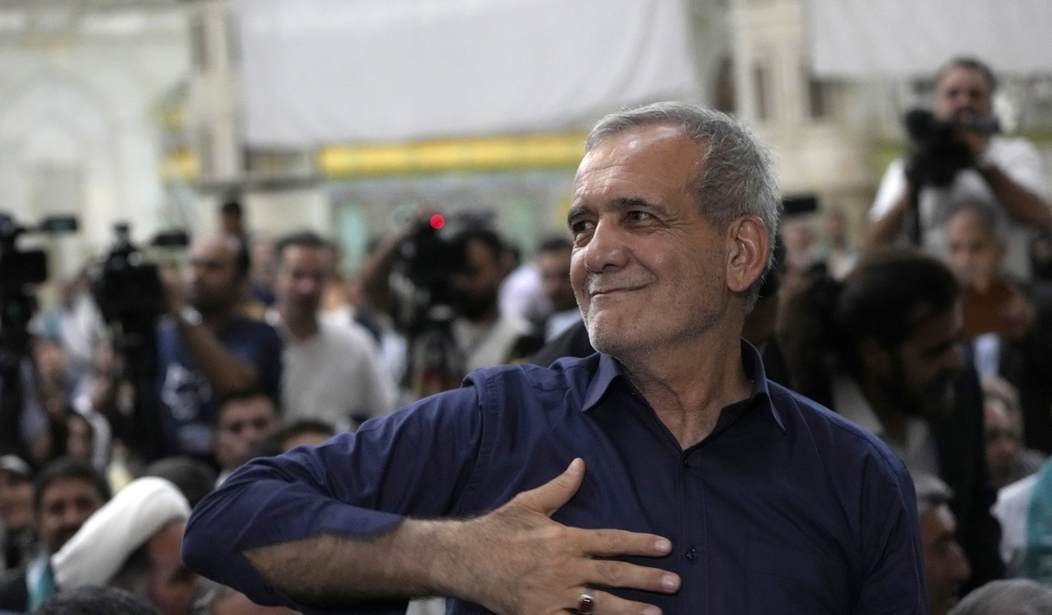As a second wave of explosions hits Hezbollah and its command structures, the success of the Israeli attacks raises some interesting questions. Yesterday's question after the pager operation was why Iran's ambassador to Lebanon carried a pager sourced to Hezbollah for operational communications. Mojtaba Amani got injured in the explosion, although initial reports claimed at first that his injuries were "superficial." The New York Times heard otherwise:
Iran’s ambassador to Lebanon, Mojtaba Amini, lost one eye and severely injured his other eye when a pager he was carrying exploded in a simultaneous wave of blasts targeting wireless electronic devices, according to two members of Iran’s Revolutionary Guards Corps briefed on the attack.
The Guards members, who had knowledge of the attacks and spoke on the condition of anonymity because they were not authorized to speak publicly, said Mr. Amini’s injuries were more serious than Iran initially reported and that he would be medevacked to Tehran for treatment.
Hossein Soleimani, the editor in chief of Mashregh, the main Revolutionary Guards news website, confirmed the extent of Mr. Amini’s injuries in a post on X. “Unfortunately the injuries sustained by Iran’s ambassador were extremely severe and in his eyes,” Mr. Soleimani wrote.
That post is still up, even while Iranian state media are trying to deny it:
متاسفانه آسیبهای وارد شده به سفیر ایران در ناحیه چشم و بسیار شدید بوده است. https://t.co/LBVrdLGSsa
— H.Soleimani 🇮🇷 (@HS_Soleimani) September 17, 2024
Unfortunately, the injuries inflicted on the Iranian ambassador in the eye area were very severe.
Why would a diplomat carry a communication device connected to a terror network currently attacking another state, intended for operational purposes? We'll get back to that question, but first, let's look at today's question, asked in Star Trek V fashion: What did nearly 200 IRGC troops need with a Hezbollah pager?
19 Islamic Revolutionary Guard Corps (IRGC) members were killed after their pagers had exploded in Deir ez-Zur in eastern Syria, Saudi news source Al-Hadath reported Wednesday afternoon.
An additional 150 IRCG members were also wounded in the explosions, Army Radio reported, citing the Saudi news source.
Eastern Syria? One might expect the IRGC troops in western Syria to have some significant coordination with Hezbollah. Why would they coordinate with Hezbollah in eastern Syria, near Iraq and Kurdistan? Hezbollah isn't just Iran's proxy in the war against Israel and their hooks into Lebanon's governance. They have also played a significant role in propping up Tehran's puppet in Syria, Bashar al-Assad, whose regime has been rocked by civil war for more than a decade. The Shi'ite network also has played a big role in tamping down the Sunni insurrections in eastern Syria, specifically ISIS. Hezbollah also trains in Syria for the war against Israel, which requires significant coordination and lines of communication shared with the IRGC.
Still, one might expect Hezbollah commanders and non-coms to wear Iranian pagers, not the other way around. This suggests that there isn't much space between Iran and Hezbollah as some might think, not even in a diplomatic sense.
It also suggests significant incompetence by the IRGC as well. Now it appears that both Hezbollah and the IRGC never checked the pagers that Hezbollah bought and distributed to all of their important personnel. That is a basic security failure, for reasons that are obvious now but should have been obvious at the time, too. Buying these pagers from some new outfit in Budapest without any QC inspections is incompetence so basic that it calls into question the quality of leadership across the whole organization.
The biggest question today may be this, however: why didn't Iran and the IRGC simply provision these pagers and radios to Hezbollah themselves? That question became even more acute after other lower-tech devices began blowing up this morning, even with a full day for Hezbollah to do an emergency check on their radios and other comms equipment. Don't forget that Hezbollah changed its entire comms infrastructure this year to deal with Israeli penetration, only to find out that the Israelis literally penetrated each and every device they bought on the open market.
If Iran can't produce this for its proxy armies, does it have to outsource comms equipment for the IRGC too? If so, have they checked theirs lately? If Iran has to start conducting business by carrier pigeon too, then they are in serious trouble, and not just from Israel. This kind of comms failure could have repercussions in dealing with a very restive population that already detests the mullahcracy and its storm troopers.







Join the conversation as a VIP Member